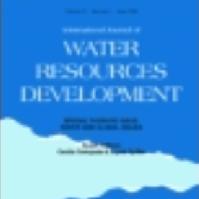Resumen
-
In the old approach, disregard for civil rights of project-affected people during the planning, construction and operation phase of large dam projects, which are typically built in remote areas rather than in urban areas, can result in confrontation, conflicts and resistance movements that can be avoided or minimized if a public participatory approach is adopted. In the new approach, to ensure broad acceptance of projects or system development alternatives, it is important to present and discuss as early in the planning stage as possible all the pros and cons of competing scenarios with interested parties, including the persons directly affected by the project and non-governmental organizations, taking into account technical, economic, financial, environment, social, institutional, political and risk factors. It is the purpose of the paper to describe this process of consensus seeking in greater detail on the basis of the experience gathered on two water resource development projects, the Itaparica hydropower scheme and the Castanhão multipurpose scheme, situated in the north-east of Brazil.
